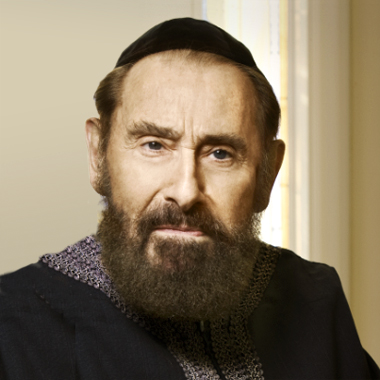There is no section of the Zohar that really belongs to the portion of Re’eh.
The word re’eh means to “see,” which seems to be totally superfluous because the first few biblical verses say, “Behold, I give before you today a blessing and a curse; the blessing if you shall hearken to the commandments of the Lord, which I give you this day; and the curse, if you shall not hearken to the commandments of the Lord…” Does the word “behold” make any sense in what God is telling us? In life, don’t we see the contrary to what this verse implies; those who are kind and good seem cursed, and those who are so evil get away with it?
"The word re’eh is one of the 72 Names of God."
The word re’eh is one of the 72 Names of God that is most often applied during our prayers. When we use the word “see,” it can be used to refer to an understanding, as in seeing something not physical. For example, in the expression “Do you see?” the word “see” or “I see” is replacing “I understand.” We use this expression infinite times. Yet, we also use the word to refer to something physical that we see.
In another section, the Zohar says that the greatest plague of mankind is that we do not see; that often because we think we are so smart, we do not see what is really coming; we do not see what is really happening. The Zohar and Talmud both express the idea that most of the mishaps in life—illness, loss of money, loss of financial status, loss in a family, quarrels in a family—originate from evil eye. We are not even talking about negative people; we are talking about the unconscious evil eye.
"We do not see."
Some think when you are a good person you will have blessing, but, in truth, being a good person is not a guarantee of receiving blessing, and neither is being an evil person a guarantee of receiving a curse. Obviously, this first verse is not referring to something physical. The idea is that when we have the ability to see what is coming before it happens, we can then do something about it. If we are not conscious at the moment when negativity surfaces it is because it is not part of our reality at the moment. It is so concealed.
In Re’eh, the Bible repeats over and over again that knowledge does not come from how learned we are. How many times have we had a warning and still we did not pay attention? This is the benefit of this portion. The Creator is telling us, “Don’t do this, it could bring disaster.” King David says that we have eyes, but we do not see. This is because seeing is not on a physical level. To see an impending disaster, to see an opportunity, this is the blessing of seeing and is what the portion of Re’eh is all about.
When we understand, when we “see” what this portion is teaching us, we realize that it is not just to fulfill a commandment. Rav Shimon, in the Zohar, says that if we do not have knowledge, we cannot make the connection.
It is a paradox, but restriction helps us to see, to have knowledge, and restriction requires discipline. Discipline helps us to be connected to God, and when we are connected to God we get the messages. Rav Shimon was so connected that his consciousness was above time, space, and motion and therefore he had true vision.
